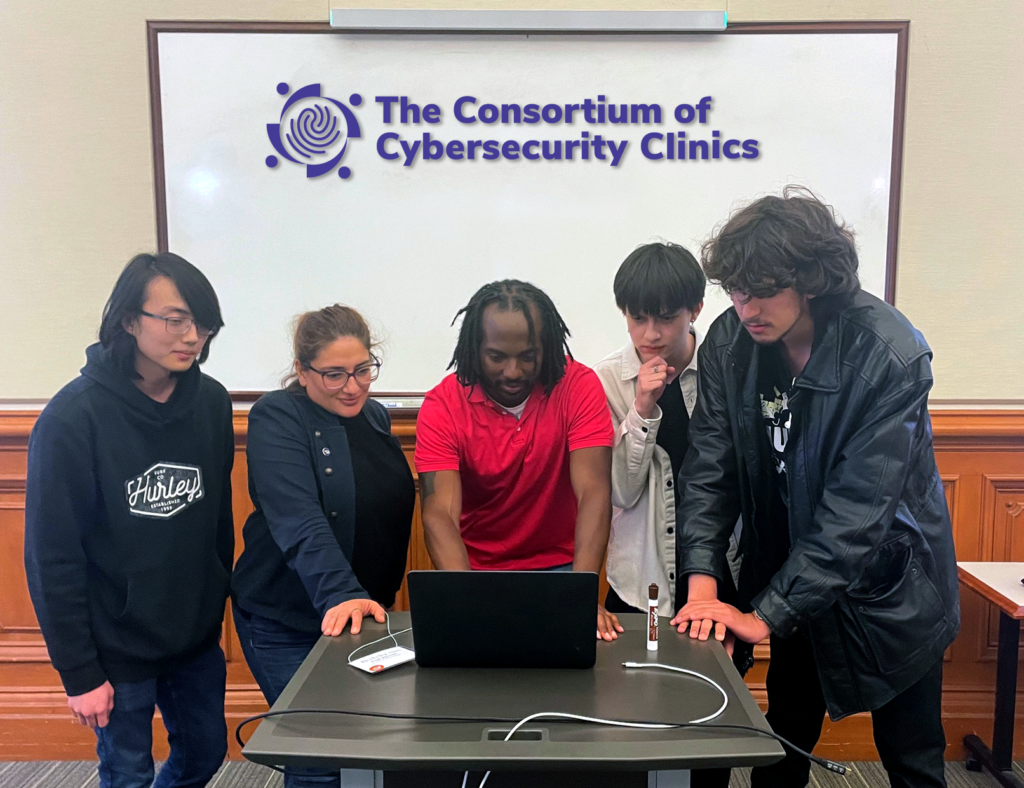Month: June 2024
New investments to help build the U.S. cybersecurity workforce
Axios: Google invests $15M to train new cyber pros
Google Fund to Help Colleges and Universities Launch 15 New Cybersecurity Clinics across the U.S.
Google.org’s $25M+ investment in 25 cybersecurity clinics by 2025 is helping expand the Consortium of Cybersecurity Clinics nationwide
BERKELEY, CA – Fifteen colleges, universities, and collaborative initiatives across the United States will receive $1 million grants and additional support from Google’s Cybersecurity Clinics Fund to launch new cybersecurity clinics. The funding from Google.org, the company’s philanthropic arm, is part of a $25-million+ investment to develop 25 U.S.-based clinics by 2025, in collaboration with the Consortium of Cybersecurity Clinics.

Similar to pro bono clinics in schools of law and medicine, cybersecurity clinics provide students with hands-on experience in digital security as they protect the networks of critical infrastructure like hospitals, schools, energy grids, as well as non-profits and other public interest organizations.
“Google’s transformative investment is catalyzing cybersecurity for the public good,” said Ann Cleaveland, Co-Founder and Co-chair of the Consortium of Cybersecurity Clinics and Executive Director of the UC Berkeley Center for Long-Term Cybersecurity, the Consortium’s administrative home.
“We congratulate the recipients and applaud these awards,
Ann Cleaveland
which propel forward the vision of the Consortium of Cybersecurity Clinics
to establish a cybersecurity clinic in every U.S. state by 2030.”
“After several years of working with public agencies in New England, it is now clear that college-based cybersecurity clinics can be the key to protecting critical urban infrastructure from cyber attack,” said Professor Larry Susskind, Co-Chair of the Consortium and Director of the MIT Cybersecurity Clinic. “The new clinics will expand the Consortium’s coverage to almost half the states in America. Clinics provide hands-on instruction while allowing their colleges and universities to meet their social responsibilities.”
According to the World Economic Forum’s 2024 Global Risks Report, cyber insecurity remains one of the top 10 global risks over the next 10 years. Americans filed 880,418 complaints with the FBI’s Internet Crime Complaint Center (IC3) in 2023, with potential losses exceeding $12.5 billion — a 22% increase compared to 2022. Meanwhile, there are nearly 450,000 open cybersecurity jobs available in the U.S, according to CyberSeek, and employment of information security analysts is projected to grow 32 percent from 2022 to 2032, according to the U.S. Bureau of Labor Statistics.
Cybersecurity clinics are a “win-win,” as they provide a diverse pool of students with hands-on cybersecurity training while protecting under-resourced community organizations from cyber threats. Clinics were included as part of the Biden-Harris Administration’s National Cyber Workforce and Education Strategy (NCWES), which encourages colleges, universities, and state, local, tribal, and territorial governments “to increase the use of hands-on learning opportunities, such as cyber clinics and cyber ranges, to enable students to work directly with organizations in their communities and develop cyber skills in simulated environments.” The Cybersecurity and Infrastructure Security Agency (CISA) also recently published a resource guide for university cybersecurity clinics, noting that “clinics act as force-multipliers for our mission to strengthen target-rich, resource-poor organizations.”
“The world is in a moment where emerging technologies, like AI, are creating both new opportunities and threats in the world of cybersecurity,” said Heather Adkins, VP of Security Engineering at Google. “It’s essential that we invest in growing a strong, diverse, and widespread cybersecurity workforce to help protect everyone — from critical infrastructure to small businesses and schools. The 15 clinics that we’re helping to establish serve a wide variety of students across all corners of the U.S. and we’re excited to see the impact they’ll have in their local communities.”
“Google’s continued investment in expanding the reach and impact of university-based cybersecurity clinics will have a major impact for decades to come. We’re thrilled to be at the forefront of this movement that is training a diverse new generation of cybersecurity professionals and developing digital defenses for critical community organizations.”
Carol Christ, Chancellor, UC Berkeley
In addition to grant funding, Google will provide the new clinics with volunteer mentorship from Google employees, as well as Titan Security Keys and scholarships for the new Google Career Certificate in Cybersecurity. As part of the investment in cybersecurity clinics, Google also made a $2.2M grant in 2023 to support the Consortium’s efforts to build the capacity of clinics nationwide, including mentoring new clinics, sharing teaching resources, and conducting research across the network of clinics to better serve the public interest.
Chosen from over 200 applications, the 15 colleges, universities, and collaborations selected to receive the $1 million grants are:
- Benjamin Franklin Cummings Institute of Technology
- The Cyber Center of Excellence (CCOE), a non-profit collaborative that includes California State University San Marcos, National University, and San Diego State University
- Dakota State University
- Eastern Washington University
- The National Security Institute at George Mason University’s Antonin Scalia Law School, in collaboration with Howard University
- Northeastern State University
- Spelman College
- The University of Texas at El Paso
- Tougaloo College
- Trident Technical College
- Turtle Mountain Community College
- The University of Arizona
- The University of Hawaii – Maui College
- The University of North Carolina Greensboro
- West Virginia State University
The grantees serve diverse student populations, including rural communities and students attending two-year institutions, and span a variety of Minority-Serving Institution designations, including Asian American and Native American Pacific Islander-Serving Institutions (AANAPISI), Hispanic-Serving Institutions (HSI), Historically Black Colleges and Universities (HBCU), Native Hawaiian Pacific Islander Serving Institutions, Tribal Colleges, and Native American-Serving Nontribal Institutions. The new clinics will bring the Consortium of Cybersecurity Clinic’s total presence to 32 cybersecurity clinics in 22 states plus the District of Columbia.
Craig Newmark Philanthropies’ Cyber Civil Defense Initiative helped launch and establish the Consortium as a national platform. Other early supporters of the Consortium include the William and Flora Hewlett Foundation, the Fidelity Charitable Trustees’ Initiative, and New America’s Public Interest Technology University Network (PIT-UN).

